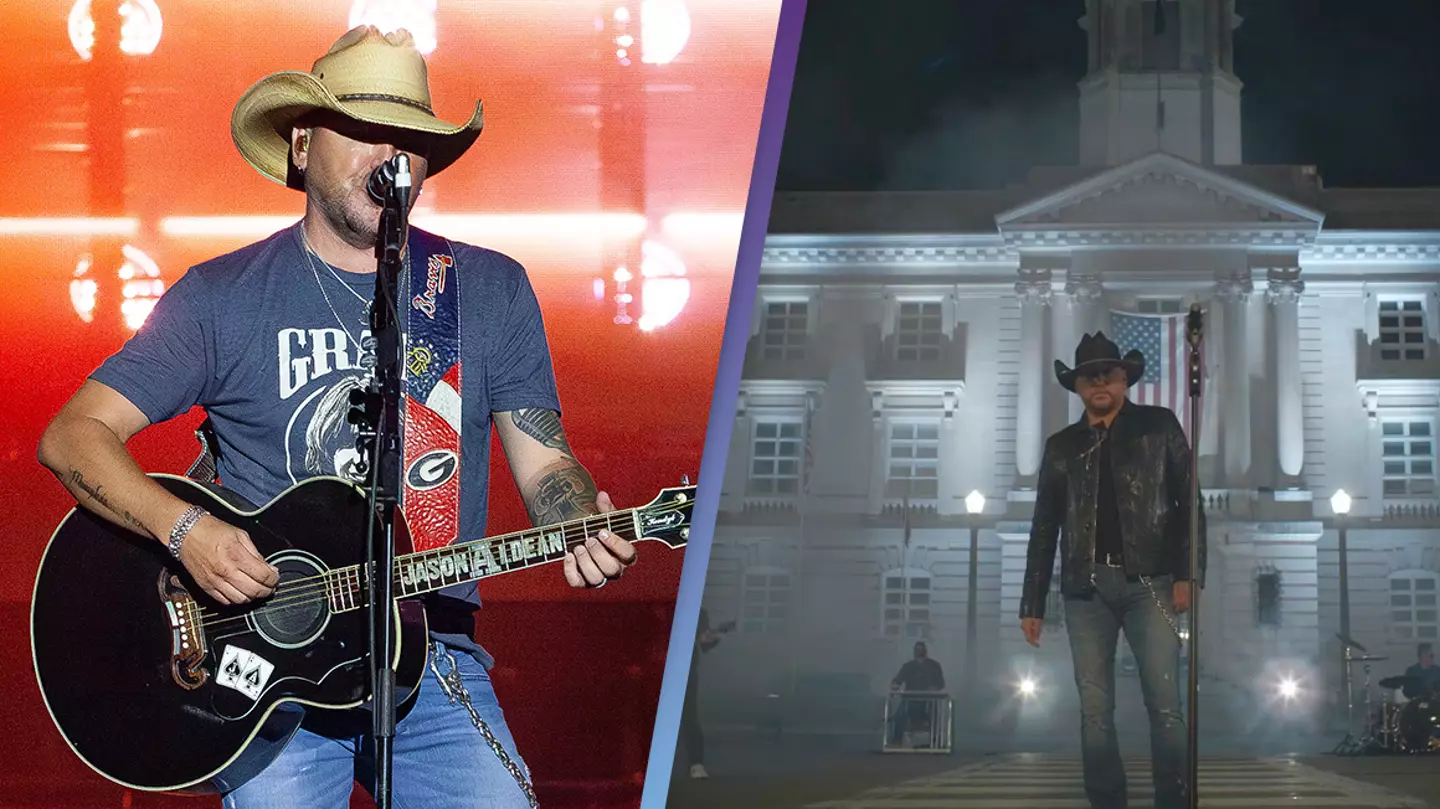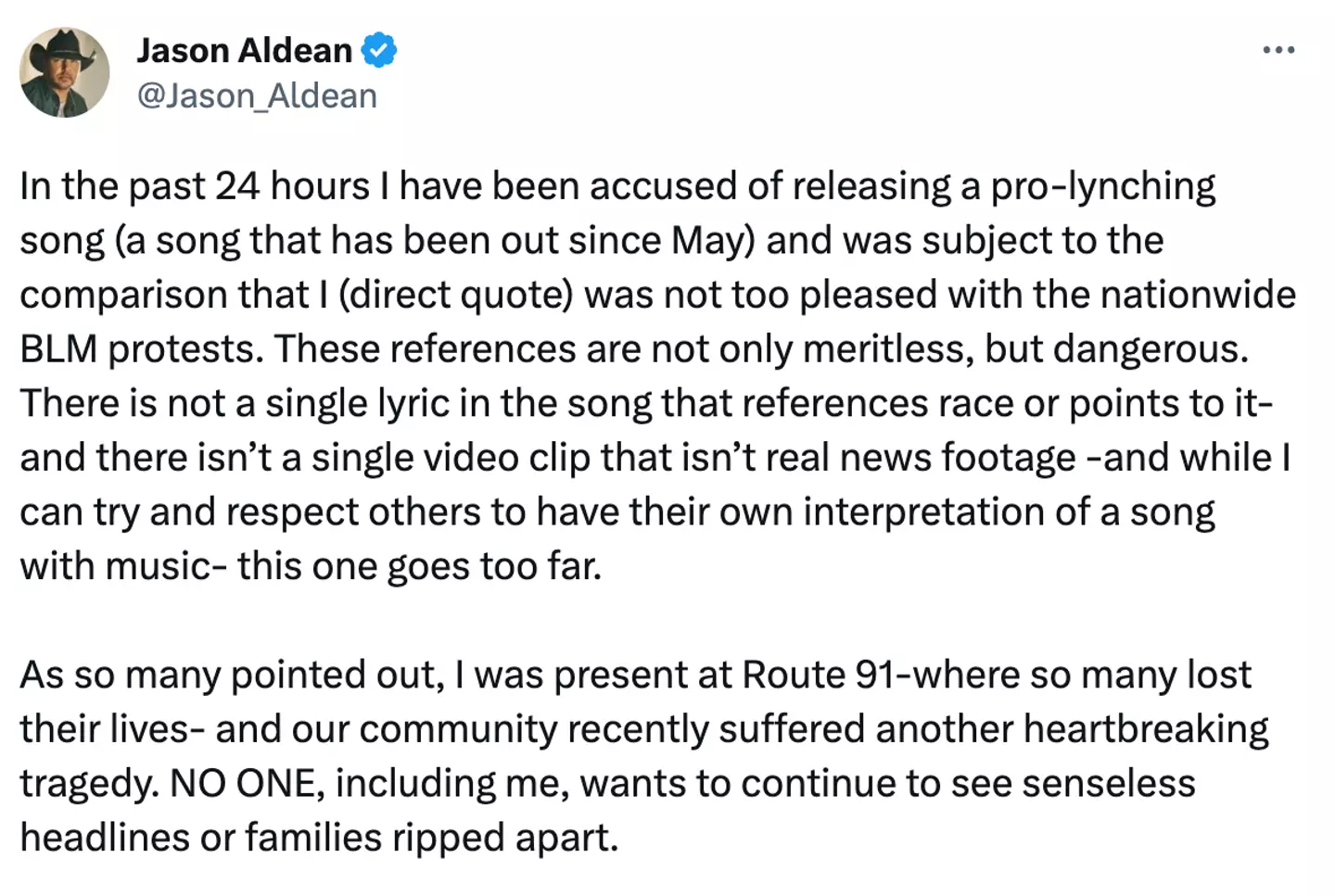
Jason Aldean isn't going to apologize for his divisive song 'Try That In A Small Town' anytime soon.
While the song didn't make many headlines when it was first released, the music video incited a lot of hatred and there were accusations the country singer was sending a worrying message.
Parts of the video were filmed at Maury County Courthouse in Columbia, Tennessee, which was the location of the 1927 lynching of Black teenager Henry Choate.
Advert
There were other sections that showed protests like the ones from the Black Lives Matter movement.
In the song, Aldean sings about things he thinks people do in large cities that wouldn't fly in rural or regional America.
These smaller towns of the US would apparently never stoop to behaviour such as 'car-jacking an old lady', pulling 'out a gun on the owner of a liquor store' or 'cussing out a cop'.
Advert
It caused an almighty storm when it was released on streaming services.
Some called it a 'heinous song for racist violence', while others said 'there are hundreds of rap songs out there that are infinitely worse and also enjoyable'.
Aldean initially addressed peoples' concerns and argued there is 'not a single lyric in the song that references race or points to it', and that video clips included are 'real news footage'.
However, in an interview on the Coop’s Rockin’ Country Saturday Night podcast, he's opened up about all the hubbub.
Advert

"The biggest issue, I think, people had when we released the song was that it mentioned ‘having a gun that my grandfather gave me',” he said (via Billboard).
“I mentioned a gun, that’s a no, no right now and I just remember thinking, ‘Man, you guys haven’t even seen the video yet'."
He added: "They start making the song and the video into something that it’s not.
Advert
"It’s fine, we just live in a world that does that right now, and I’m not gonna go out and explain myself every time somebody gives their own opinion of what my song or video means.”
The country music singer's video had the Black Lives Matter protests edited out following the controversy.
But he still can't work out what the big issue is with using real-life events.
“In the video I’m showing you what happened — I didn’t do it, I didn’t create it — it just happened, and I saw it, and I’m not cool with it," he said on the podcast.
Advert
However, it seems like any publicity is good publicity because the song ended up reaching number one on the charts.
Topics: Music
